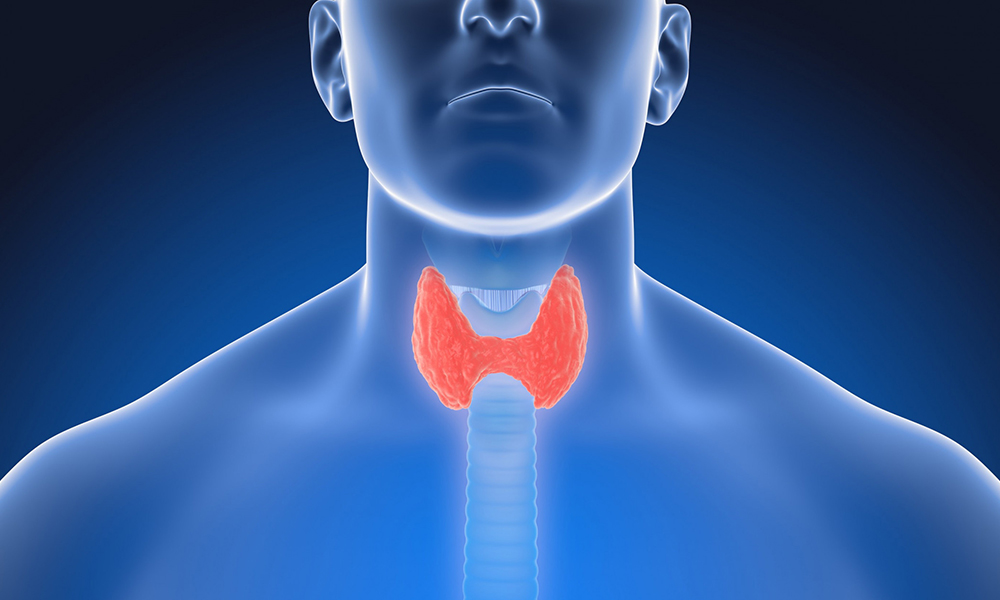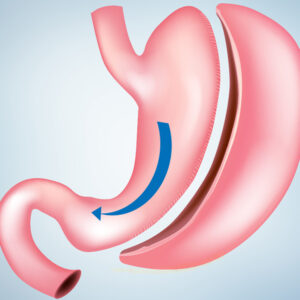
Multinodular Goiter Management
A multinodular goiter is a condition where the thyroid gland swells and forms multiple nodules. It is a common thyroid disorder that affects people of all ages.
Types of Treatments
There are several options for managing multinodular goiter, including:
Observation:
If the nodules are small and do not cause any symptoms, observation is often the first step. Regular check-ups and thyroid function tests can help monitor the condition and detect any changes.
Medications:
Medications like thyroid hormone replacement therapy can be used to regulate the hormone levels in the body and reduce the size of the nodules.
Radioactive iodine:
This is a type of therapy that uses a small amount of radioactive material to shrink the nodules and improve symptoms.
Thyroidectomy:
In some cases, surgical removal of the thyroid gland may be necessary. This procedure is called a thyroidectomy.
Multinodular Goiter Surgery
It is usually performed when the nodules are large or causing symptoms, or if there is a suspicion of cancer.
The surgery can be performed through an incision in the neck or through a small endoscopic incision. The type of surgery and the extent of removal will depend on the size and location of the nodules, as well as the patient’s overall health.
After the surgery, the patient will need to take hormone replacement therapy to replace the hormones that the thyroid gland normally produces.
FAQs
What are the risks of multinodular goiter surgery?
There is a risk of damaging the parathyroid glands or the recurrent laryngeal nerve, which can lead to problems with calcium levels or voice changes.
What is the recovery time for multinodular goiter surgery?
The length of time needed to recover after surgery is highly variable from patient to patient. Most people can return to normal activities within 2-4 weeks, but full recovery can take several months.
Will I need hormone replacement therapy after the surgery?
Yes, after the surgery, you will need to take hormone replacement therapy to replace the hormones that the thyroid gland normally produces.
How often does multinodular goiter require surgical removal?
There are several indications for surgery for multinodular goiter, including:
- Large size: If the goiter is large and causing symptoms such as difficulty swallowing or breathing, surgery may be necessary to remove it.
- Symptoms: If the goiter is causing symptoms such as neck pain, hoarseness, or persistent cough, surgery may be necessary to alleviate them.
- Suspicious nodules: If a nodule within the goiter is found to be suspicious on ultrasound or biopsy, surgery may be necessary to remove it and prevent the spread of cancer.
- Failure of non-surgical treatments: If non-surgical treatments such as medication or radioactive iodine are not effective in reducing the size of the goiter, surgery may be necessary.
- Overproduction of hormones: If the goiter is causing an overproduction of hormones, leading to conditions such as hyperthyroidism, surgery may be necessary to remove the goiter and regulate hormone levels.
How risky is goiter surgery?
Goiter surgery, also known as thyroidectomy, is a major surgical procedure that carries some risks. There is a risk of damaging the parathyroid glands or the recurrent laryngeal nerve, which can lead to problems with calcium levels or voice changes.
- In rare cases, there may be complications from the anesthesia used during the procedure, or the patient may experience an adverse reaction to the medication used to regulate hormone levels after the surgery.
- It’s important to note that the risk of complications varies depending on the individual case and the patient’s overall health. A qualified and experienced thyroid surgeon can help assess the risks and determine the best course of treatment.
- In conclusion, while goiter surgery carries some risks, it can also be a highly effective treatment option for multinodular goiter, especially in cases where non-surgical treatments have failed or if the goiter is causing significant symptoms.
Can you talk after goiter surgery?
Most people are able to speak normally after goiter surgery, but some patients may experience temporary or permanent changes in their voice.
The recurrent laryngeal nerve, which controls the movement of the vocal cords, runs close to the thyroid gland and can be damaged during the surgery. In some cases, this can result in temporary hoarseness or weakness of the voice. However, in most cases, the nerve recovers fully and the patient’s voice returns to normal within a few weeks or months after the surgery.
In rare cases, permanent damage to the recurrent laryngeal nerve may occur, leading to a permanent change in the patient’s voice. However, this is a rare complication and is usually preventable with proper surgical technique.
It’s important to note that the risk of voice changes varies depending on the individual case and the patient’s overall health. A qualified and experienced thyroid surgeon can help assess the risks and determine the best course of treatment.
In conclusion, while some patients may experience temporary or permanent changes in their voice after goiter surgery, most people are able to speak normally after the procedure.
How many days rest after thyroid surgery?
The amount of time required for rest after thyroid surgery can vary depending on the individual case and the patient’s overall health.
- In general, most people need to take it easy for the first few days after the surgery, and can expect to return to normal activities within 1 to 2 weeks.
- Strenuous physical activity, heavy lifting, and driving should be avoided for at least 2 to 4 weeks after the surgery to allow for proper healing.
- It’s important to follow the instructions of your healthcare provider and to avoid engaging in activities that may cause excessive strain on the neck, such as heavy lifting, driving, or strenuous exercise.
The amount of rest required after thyroid surgery can vary, but most people can expect to return to normal activities within 1 to 2 weeks. Following the instructions of your healthcare provider is important to ensure proper healing and to minimize the risk of complications.
Goiter surgery in İstanbul
In conclusion, multinodular goiter is a common thyroid disorder that can be managed with observation, medications, radioactive iodine, or surgery. A thyroidectomy is a surgical procedure to remove all or part of the thyroid gland and is usually performed when the nodules are large or causing symptoms, or if there is a suspicion of cancer. After the surgery, hormone replacement therapy is required to replace the hormones that the thyroid gland normally produces.













I had tube stomach surgery to my teacher İbrahim. I was very nervous before the surgery. The teacher explains everything in great detail. I didn't have any pain except for the first few hours after the surgery. I feel very good now. Thank you very much to my teacher and his team. I would recommend it to everyone.
Hi Ibrahim Elif beceremed from Aksaray to be weak after many years until they met our teacher today I follow my 3 day agackiran fortunately our teacher friendly operation evimdeyim positive energy once you get to know and I regret it I wish I didn't know what fear is before you panic if I was my suggestion to everyone is our teacher closed his eyes forget about everything gelinkimse Ibrahim's smile makes all the guarantees which I thank very much for everything you people must be happy happy like I've known pain make sure you thank God for each valuable sehirde
Hi, I tried everything for the sake of slimming years and now stomach surgery but I didn't get the result but I was too scared I'd decided to have a teacher Ibrahim afterwards, I found there was around me afterwards, I went to see her surgery in patients with and for the first time I saw a doctor speaks so loud and clear. i had surgery 2 days ago and everything is very nice now and I am standing up, I have started my walks. Thank you very much to my teacher and his team, if you have such an opinion without the slightest hesitation, I would say meet with Ibrahim teacher without wasting time, you will never regret it...
He is the sweetest, most smiling, most affectionate, most sincere and such a successful doctor I have ever seen in my life. I felt not like I was visiting a doctor, but like I was visiting someone from my family. I couldn't even go to the preliminary interview because I was afraid for years, my teacher convinced me in 10 minutes for obesity surgery. I had surgery about a week ago, I'm taking good care of my two children right now, and I've even been able to return to my job, I'm glad that you exist, Ibrahim teacher, I love you very much.